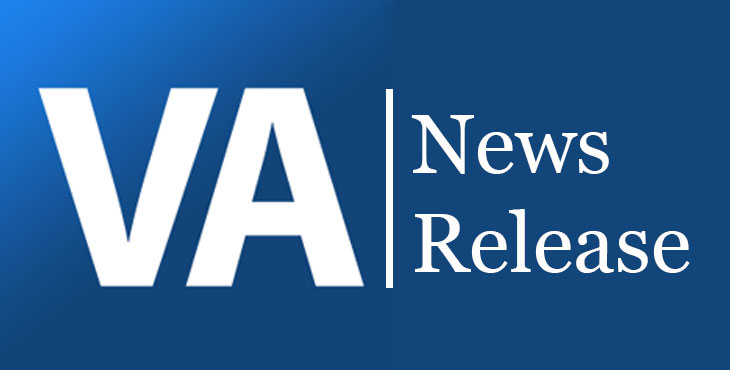President Donald J. Trump is proposing a total of $220.2 billion in his fiscal year (FY) 2020 budget for the U.S. Department of Veterans Affairs (VA), a 9.6 percent increase above fiscal 2019.
“The budget request will ensure the nation’s Veterans receive high-quality health care and timely access to benefits and services,” said VA Secretary Robert Wilkie. “The budget supports the most significant transformation of VA since its inception, positioning the department as the premier provider for Veterans’ services and benefits. This is a significant increase in VA funding and demonstrates the administration’s commitment to supporting our Veterans.”
Budget highlights
The FY 2020 budget includes $97 billion (an increase of $6.8 billion, or 7.5 percent) in discretionary funding, including resources for health care, benefit administration, and national cemeteries, as well as $123.2 billion (an increase of $12.3 billion or 11.1 percent) in mandatory funding above 2019 for benefit programs inclusive of Compensation and Pensions, Readjustment Benefits, Housing and Insurance. This budget provides robust funding for the secretary’s top priorities.
MISSION Act: $8.9 billion for implementation of the Maintaining Internal Systems and Strengthening Integrated Outside Networks Act of 2018 (MISSION Act) to provide greater choice on where Veterans receive their care, maintain care for current Choice Program users, provide a new urgent care benefit and expand the Caregivers program.
Electronic Health Record Modernization (EHRM): $1.6 billion ($496 million above FY 2019) to create and implement a single longitudinal electronic health record for military service members from their active duty to Veteran status, and ensure interoperability with the Department of Defense. The increase will support ongoing activities at the three initial deployment sites and the deployment to further sites, as well as additional site assessments.
Transforming Business Systems: Funds the continued deployment of a modern integrated financial and acquisition management system ($184.9 million) and implementation of the Defense Medical Logistics Standard Support ($36.7 million).
Improving Customer Service: $8.1 million to maintain VA’s trajectory of improving its customer service. The results of a recent customer-experience feedback survey of Veterans regarding their trust of the department’s health care outpatient services showed ”trust scores” for outpatient services increased from 84.7 percent in June 2017 to 87.9 percent in January 2019.
Preventing Veteran Suicide: $9.4 billion ($426 million above 2019) for mental health services, which includes $222 million for suicide-prevention outreach, a $15.6 million increase over 2019.
Women’s Health: $547 million ($42 million above 2019) for gender-specific women’s health care. This increase will help meet VA’s goals of developing Designated Women’s Health Primary Care Providers at every site where women access VA care, and improve the availability and quality of services to women Veterans.
Capital Investments: $1.6 billion for major and minor construction, including $410 million for the construction of a new hospital in Louisville, Kentucky, and $150 million for the Manhattan, New York, medical center.
Budget materials are available here: https://www.va.gov/budget/products.asp.
Topics in this story
More Stories
Summer Sports Clinic is a rehabilitative and educational sporting event for eligible Veterans with a range of disabilities.
Report examines the input of over 7,000 women Veterans: They are happier with VA health care than ever before.
Veterans and caregivers, you can help shape the future eligibility requirements for the VA Caregiver Support program.






